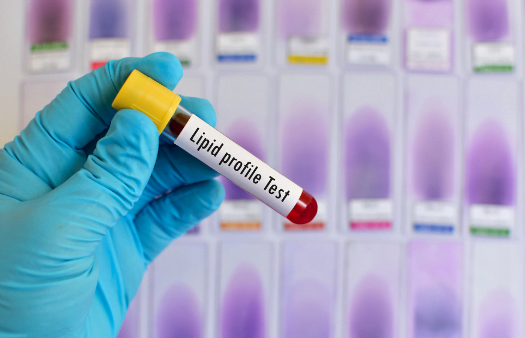Lipid Stability Testing in Dairy Products
The integrity and quality of dairy products are paramount to consumer health and satisfaction. Ensuring that these products maintain their lipid stability is critical not only for preserving the nutritional profile but also for enhancing shelf life and preventing spoilage. Lipid stability testing in dairy products helps manufacturers identify potential issues early, ensuring they meet stringent quality standards and comply with regulatory requirements.
Lipids play a crucial role in determining the texture, flavor, and overall sensory characteristics of dairy products. The breakdown or oxidation of lipids can lead to off-flavors, rancidity, and reduced shelf life. Therefore, lipid stability testing is an essential tool for quality assurance departments within the dairy industry.
Lipid stability testing involves evaluating several key parameters that influence the behavior of lipids in dairy products over time. These include oxidation resistance, emulsification properties, and thermal stability. Oxidation is particularly concerning as it can lead to undesirable changes in color and flavor. Emulsification properties are vital for maintaining the structure of dairy products such as butter or yogurt. Thermal stability ensures that the product retains its integrity under various storage conditions.
The testing process typically begins with the collection of samples from different stages of production, including raw milk, cream, and final products like cheese or butter. Each sample undergoes rigorous preparation to ensure accurate results. This may involve homogenization, dilution, and incubation at controlled temperatures. Advanced analytical techniques such as high-performance liquid chromatography (HPLC), gas chromatography-mass spectrometry (GC-MS), and Fourier-transform infrared spectroscopy (FTIR) are used to analyze lipid components.
The primary goal of lipid stability testing is to establish baseline data for each product formulation. This allows manufacturers to monitor changes over time, detect potential problems early, and implement corrective actions if necessary. By leveraging this information, companies can optimize production processes, extend shelf life, and improve overall product quality.
Regulatory bodies around the world have established guidelines to ensure that dairy products remain safe and of high quality. For example, ISO standards provide a framework for conducting lipid stability tests, ensuring consistency across different laboratories. Compliance with these standards is crucial for maintaining consumer trust and avoiding potential recalls or legal challenges.
In summary, lipid stability testing in dairy products is an indispensable part of the quality assurance process. It enables manufacturers to maintain consistent product quality, extend shelf life, and comply with international regulatory requirements. By investing in this service, dairy companies can protect their brand reputation and ensure that consumers receive safe, high-quality products.
Eurolab Advantages
At Eurolab, we pride ourselves on offering comprehensive lipid stability testing services tailored specifically for the dairy industry. Our team of experts uses cutting-edge technology and adheres strictly to international standards such as ISO 6892-1:2014 and ASTM D7535 to ensure precise and reliable results.
- Accurate Analysis: Utilize state-of-the-art equipment like HPLC, GC-MS, and FTIR for detailed lipid profiling.
- Compliance Assurance: Stay ahead of regulatory changes with our adherence to ISO and ASTM standards.
- Experienced Professionals: Our team comprises highly qualified scientists and engineers with extensive experience in dairy product testing.
- Custom Solutions: Tailor our services to meet the unique needs of your specific products and processes.
We understand that every customer has different requirements, which is why we offer personalized service plans designed specifically for quality managers, compliance officers, R&D engineers, and procurement teams. Our commitment to excellence ensures that you receive accurate, reliable results that help drive informed decision-making within your organization.
Customer Impact and Satisfaction
The lipid stability testing services provided by Eurolab have significantly impacted the dairy industry by enhancing product quality and extending shelf life. Our clients report improved customer satisfaction due to the enhanced sensory qualities of their products, which are achieved through better control over lipid breakdown.
One of our long-term customers, a major cheese manufacturer, noted an increase in sales following implementation of our testing protocols. They observed that by optimizing production processes based on test results, they were able to reduce waste and improve consistency across all batches. Another customer highlighted the importance of staying compliant with international standards, which helped them avoid costly recalls and maintain their market position.
Feedback from our clients consistently praises Eurolab's dedication to accuracy and reliability. They appreciate the detailed reports provided after each test run, which serve as valuable tools for continuous improvement initiatives within their organizations. Many have expressed interest in expanding collaboration opportunities beyond just lipid stability testing, indicating a strong partnership built on mutual trust.
Customer satisfaction is at the heart of everything we do at Eurolab. Our goal is to provide services that not only meet but exceed expectations, ensuring that our clients remain competitive and successful in their respective markets.





